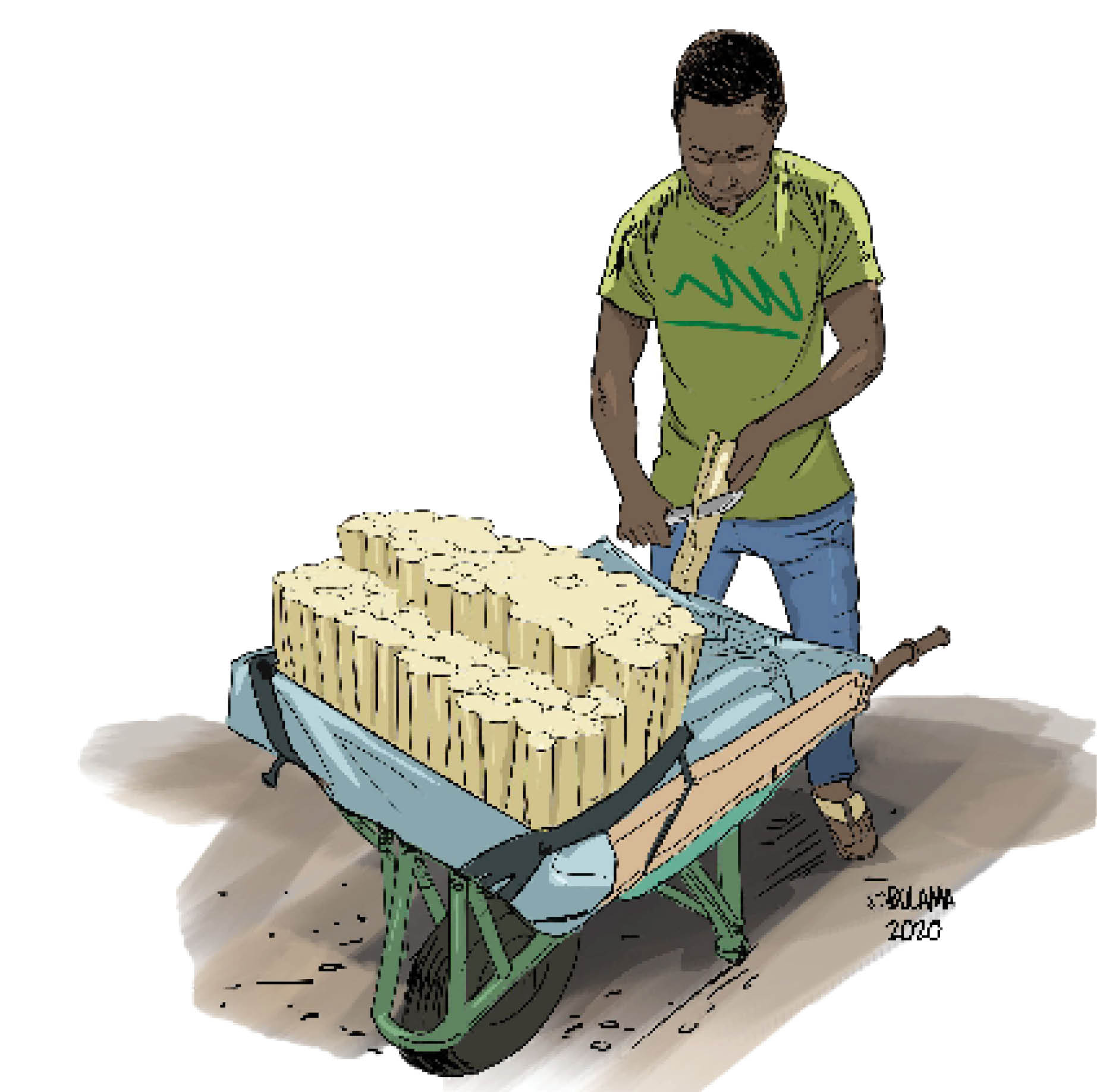‘How we cope in Abuja doing menial jobs’
The day-to-day life of some lower-class people, who engage in menial jobs and run errands in expensive residential areas of Abuja, cannot be described as interesting, especially looking at how they manage to survive with the little they earn as salaries and remuneration. Despite the fact that they spend much here on daily basis, most […]

The day-to-day life of some lower-class people, who engage in menial jobs and run errands in expensive residential areas of Abuja, cannot be described as interesting, especially looking at how they manage to survive with the little they earn as salaries and remuneration.
Despite the fact that they spend much here on daily basis, most of them also have to send money home to their families and relatives amongst many other things.
Most of these people, who have little or no western education, engage in daily essential jobs that look impractical but which human being cannot survive without. They normally work as security guards, drivers, house helps, gate men, cooks, cleaners, gardeners, errand boys etc.
Life Camp area, for example, is one of the expensive residential areas in Abuja. Residents consist mostly of top government officials, politicians, other private sector top officials amongst many other classes of peoples.
The area is usually quiet and serene just like other Government Reserved Areas (GRA). The only places that are quite busy sometimes are the Gwarinpa General Hospital and the Mosque which frequently welcome people who do not reside in the area.
Ibrahim Danjuma is a gateman in Life Camp. He said life has been a little bit easier for him because he gets three square meals free from his place of work. Despite the fact that he has so much to do at the gate, he still manages to engage in a small trading close to the house.
“I find it easier to live here because the people I work for give me food three times in a day. Unfortunately, whenever they are not in town, I have to find another means of survival. Honestly, I can’t afford to buy food every day, so I decided to be cooking my food or eat something that doesn’t need to be cooked whenever they are out of town.
“Also, they are very kind to me because they allowed me to be selling some of the minor things that people need in this area while I’m at work. So, this reduces the cost of living for me. Only that sometimes it interferes with my work, but I’m still managing,” he said.
Another gateman who doesn’t want his name mentioned, said it has not been easy working in Abuja, despite his monthly salary. He said the people he works for do not care about his health or entertain excuses about his family members who are back in the village.
“It has not been easy working here. I’m just managing this job while hoping for a better one. My salary cannot even feed me here talk less of feeding my family. The people I work for do not give food to gatemen, so I always have to battle with what to eat. I hardly eat to my satisfaction except on Fridays when I get food from neighbours as Saddaqa. I have a stove I normally use for cooking, but they always caution about fire outbreak.
“Another problem is that whenever I want to travel, they will start complaining. I have my family in our village and sometimes I have to go and see them or if there’s an emergency. One painful thing is that they don’t give me food yet sometimes they throw it away after it has decayed because they couldn’t finish it. But some of my colleagues are very lucky; they get food from their places of work. My major problem is getting what to eat and I have to trek outside to get food,” he added.
Aminu Umar, 37, a sugarcane seller, once worked as a gateman in Life Camp for 4 years. He quit the job because the salary could not cater for his needs in Abuja and that of his family in the village. However, he wants his children to be educated.
“I once worked as a gateman but the pay was not okay honestly, so I decided to quit and start something that will earn me freedom, no matter the little profit I make. That is why I am selling sugarcane and Alhamdulillah what I make now is better for me than to continue as Maigadi because people don’t respect us and the salary is poor,” Aminu said.
A driver, 30, who pleaded anonymity, said his condition of work is a bit moderate since he stays in his boss’s house and they give him food, only that he doesn’t have time and money to run his life the way other people do.
“My salary is N30000 and I get food and accommodation in my boss’s house, so it reduces a lot of burden on me. There’s no time for me to do any other business because I drive my boss around all the time. He doesn’t give me money apart from my salary, and sometimes he will promise me but he hardly gives.”
“There are other drivers in the house, but they drive his wives and children to schools and other places. Honestly, those drivers are not enjoying their stay here. There are also house helps and nannies and their salary is N10000 each,” he added.
There’s no doubt that these categories of people play vital roles in the places they work, thereby making life easier and protecting the lives and properties of their principals. But for how long will they continue to earn peanuts while making sure that their employers receive the best services?
